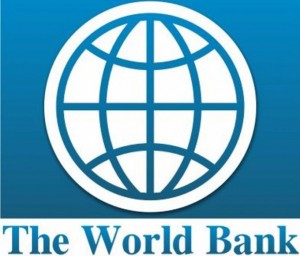New World Bank report identifies sectors that can employ Ghana’s growing youth population
 As Ghana’s population continues to grow, and a greater part are youth, the country must create job opportunities for them. A new World Bank report launched Tuesday September 29, 2020 has identified a number of sectors that can offer employment to the youth.
As Ghana’s population continues to grow, and a greater part are youth, the country must create job opportunities for them. A new World Bank report launched Tuesday September 29, 2020 has identified a number of sectors that can offer employment to the youth.
The report titled “Youth Employment Programs in Ghana: Options for Effective Policy Making and Implementation” identifies agribusiness, entrepreneurship, apprenticeship, construction, tourism and sports as key sectors that can offer increased employment opportunities for the youth.
The report also calls for more investments in career guidance and counseling, work-based learning, coaching, and mentoring to equip young people with the skills needed for work, and suggests that although these are not new areas, the government could maximize their impact by scaling-up these priority areas in existing youth employment interventions and improve outreach to the youth.
Unemployment and underemployment are global development challenges, the report noted, and cited the Bank’s World Development Report 2013, on jobs, which estimated that about 200 million youth are unemployed worldwide, so 600 million jobs will be needed over 15 years to maintain global employment rates.
Currently, half of the sub-Sahara Africa’s population is under 25 years of age, and between 2015 and 2035 each year is expected to add a half-million more 15-year-olds. And because primary commodities still account for the bulk of exports in the region, the volume of labour-intensive manufactured exports is limited, it stated.
The report also recognized the fact that in Africa, projections indicate a youth bulge by 2035, which presents both opportunities and challenges.
It indicates that Ghana is faced with 12 per cent youth unemployment and more than 50 per cent underemployment, and both are higher than overall unemployment rates in sub-Saharan African countries.
The report notes that despite major investments by both government and private sector, this challenge will intensify if job opportunities remain limited. To tackle youth unemployment, it highlights the importance of having disaggregated data on youth jobseekers by location, gender, skills and capabilities to inform policy and funding decisions and respond with appropriate and tailored employment programs.
Commenting, Ignatius Baffour Awuah, the country’s Minister of Employment and Labour Relations said, “It presents specific options to guide the government in the short to medium-term to enhance effective coordination of youth employment programmes.”
“Ghana’s youth employment challenge is vast and requires an all-round, deliberate, and consistent response. Considering the options outlined in this report, future youth employment policy planning should not only address youth unemployment but should also build the human capital needed to sustain Ghana’s economy,” Pierre Frank Laporte, the World Bank Country Director for Ghana, Liberia and Sierra Leone said.
By Emmanuel K. Dogbevi
